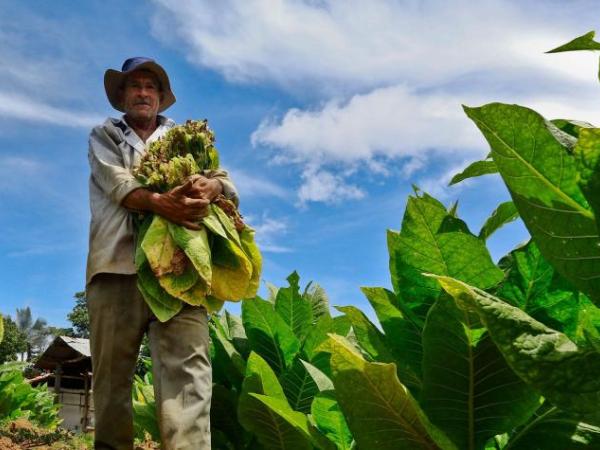Colombian Deputy Minister of Foreign Affairs Francisco Coy this Monday blamed the European Union (EU) for trying to apply “unilateral measures” make the import of agricultural and food products subject to compliance with certain ecological requirements which he says will hurt Latin American manufacturers.
(See: EU green standards worry several agricultural sectors).
“Several regulations created to implement the European Green Deal may have a negative impact on trade and therefore on our producers.“Coy said during a speech in the European Parliament, before members of the House’s European Committee on Foreign Affairs and the Euro-Latin American Parliamentary Assembly (EuroLat).
(Join our WhatsApp channel here to get all economic information from Colombia and the world).
The deputy minister expressed “concern” that “at such a difficult time for the world economy” the “trade and investment flow” between the EU and Colombia for the economic impact that some provisions of the European Green Deal, the plan with which the EU wants to achieve net zero greenhouse gas emissions by 2050, may cause.
(Read: What will the coffee industry do about the Green Deal in Europe?).
Specifically, Coy emphasized the additional costs Colombian producers will face to certify that their exports have not caused deforestationin accordance with the European law passed this year, which seeks to protect forests worldwide, and other health regulations.
In his opinion, the EU “should discuss” all these technical aspects with its trading partners and in this sense He emphasized that the trade agreement in force since 2013 between the EU and Colombia includes a commission to negotiate these issues.
(See also: European Green Deal, new interest of coffee growers).
“But sometimes we feel that the discussions with the European authorities are a bit of a dialogue of the deaf, we tell them the reasons and they tell us “yes, but we are moving towards decarbonisation and you have to adapt“, lament.
In his opinion, the EU must be “coherent” and believes that the European defense of multilateralism is incompatible with the fact of “imposing unilateral measures in the trade area”. Coy believes this stance is “not the most appropriate” from the EU, although he stressed that his government, led by progressive President Gustavo Petr, sees the fight against climate change as its own goal.
(Read: European Commission and nine retail giants clamp down on advertising in X).
“I want to be very clear, Colombia shares the ambition of these environmental goals (…), but the green transition must be fair, it must take people into account, it must ensure that no one is left behindCoy pointed out.
Colombia’s leader has asked the EU to avoid “burdening” the countries of the Global South with the “historic debt” of climate change and environmental destruction, dand for which Western countries are largely responsible, and demanded the liberation of small producers in the Global South from “impossible burdens”.
(See: Five challenges companies will have to face during 2024).
Trees
PHOTO: iStock
“Colombia has every will to advance in this transition, but we cannot be green with red numbers, so we must ensure a fair price for our producers and get operators to commit to paying them, even more so when new regulatory requirements require higher costs.” he added.
(See: ECB Expects Eurozone Inflation to Fall by Keeping Rates High).
According to Coye, it will also be necessary to “raise awareness” among European consumers to understand that they “will have to pay more” for products from third countries.like Colombia, “if we really want a just transition.”
The deputy minister called for “better use of the benefits” he believes the EU-Colombia trade deal – which also includes Peru and Ecuador – offers and which he wantsin the long term, they help create “exports that create value-added jobs” in the Latin American country and serve to reindustrialize the Colombian economy.
(Also read: Eurogroup says economy is losing momentum).
“In the first 10 years (since the validity of the agreement), Colombian exports to the EU increased. It is insufficient for Colombia, but it has a huge political value, we are part of the agreement, we are partners who can discuss parts of it“, he declared.
Coy emphasized that right now the “central pillar” of Peter’s government action is to achieve “total peace” in the country through three axes: the implementation of the 2016 peace agreement with the FARC guerrillas, “negotiations with dissidents and armed groups” and “bringing justice” to organized crime groups.
(Read: European interest in Colombian products is growing).
“It is not an easy task, there are many challenges and currents that try to derail the processes started on these three fronts by applying schools of thought that advocate military solutions and more lead and blood.Coy concluded.
EFE

